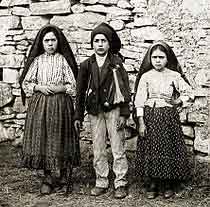 The constellation of events, noted in the previous commentary “The past prepares the future,” demonstrated that the Heavenly Father prepared a place called Fatima for His plan for peace to be revealed nearly 11 centuries later. In 1916, at the apex of the Great War, He sent an angel there to three shepherd children.
The constellation of events, noted in the previous commentary “The past prepares the future,” demonstrated that the Heavenly Father prepared a place called Fatima for His plan for peace to be revealed nearly 11 centuries later. In 1916, at the apex of the Great War, He sent an angel there to three shepherd children.


 Just recently I was reading Luke 5:17-20:
Just recently I was reading Luke 5:17-20: